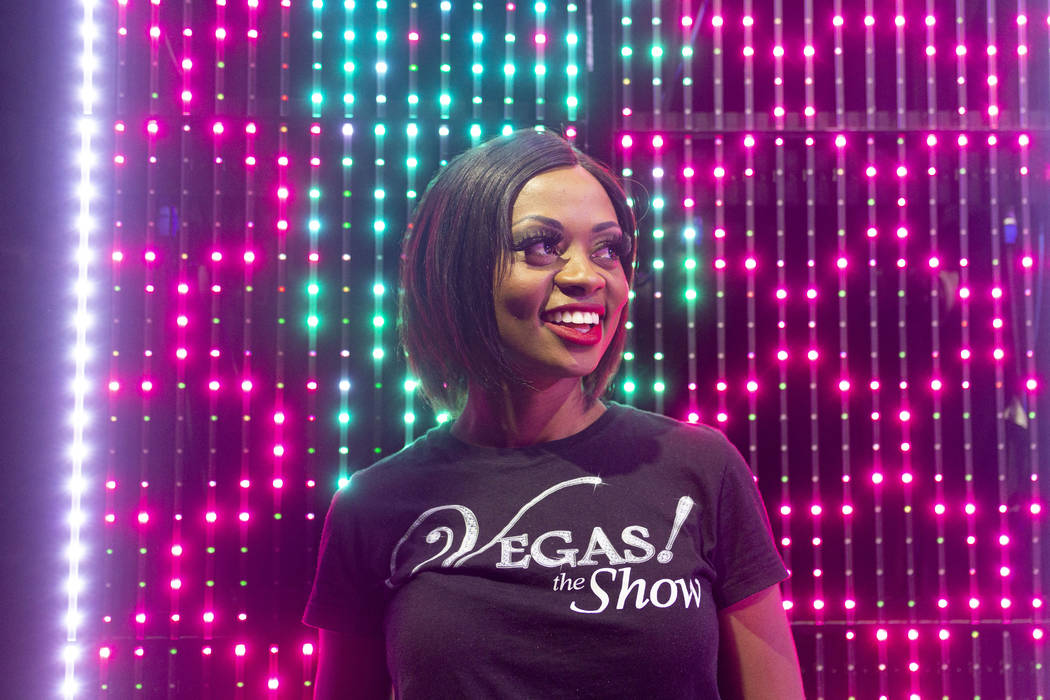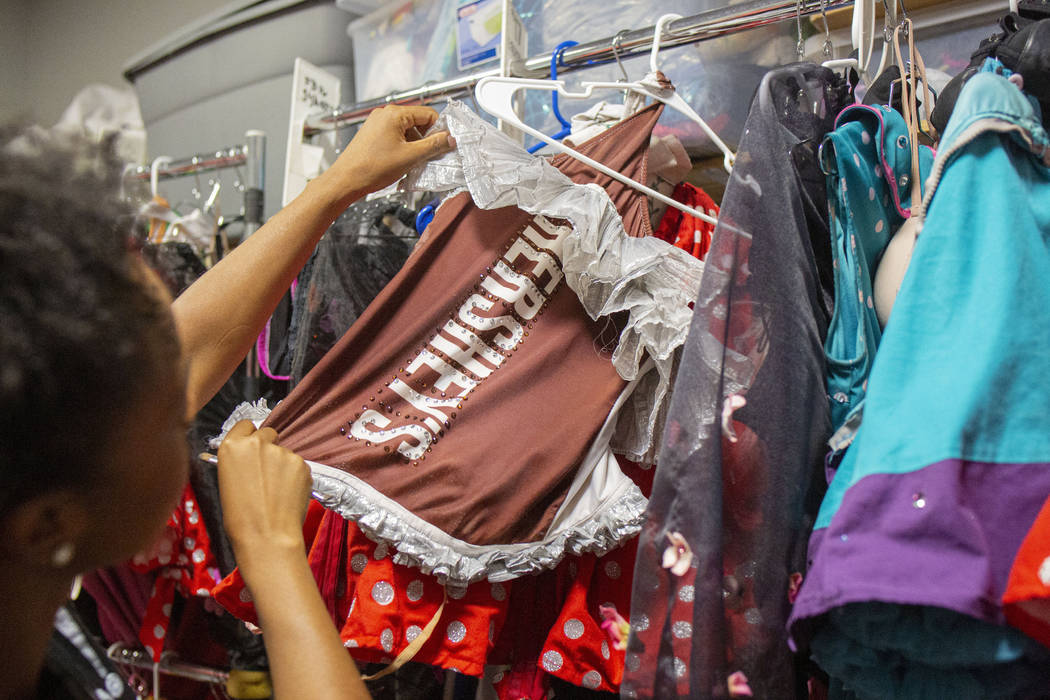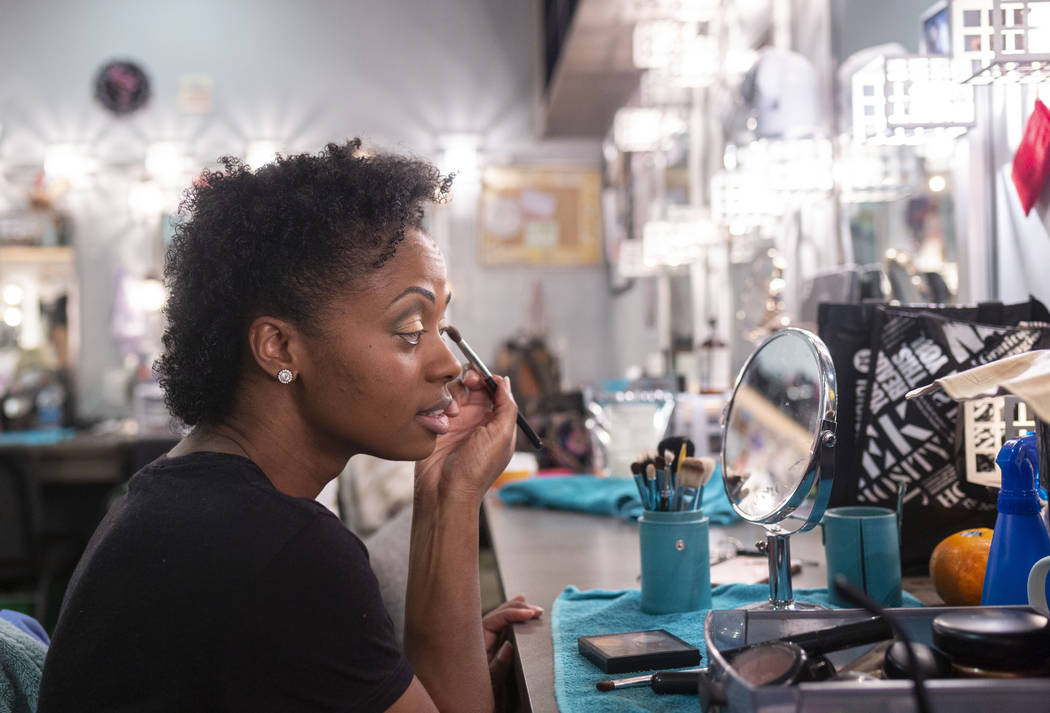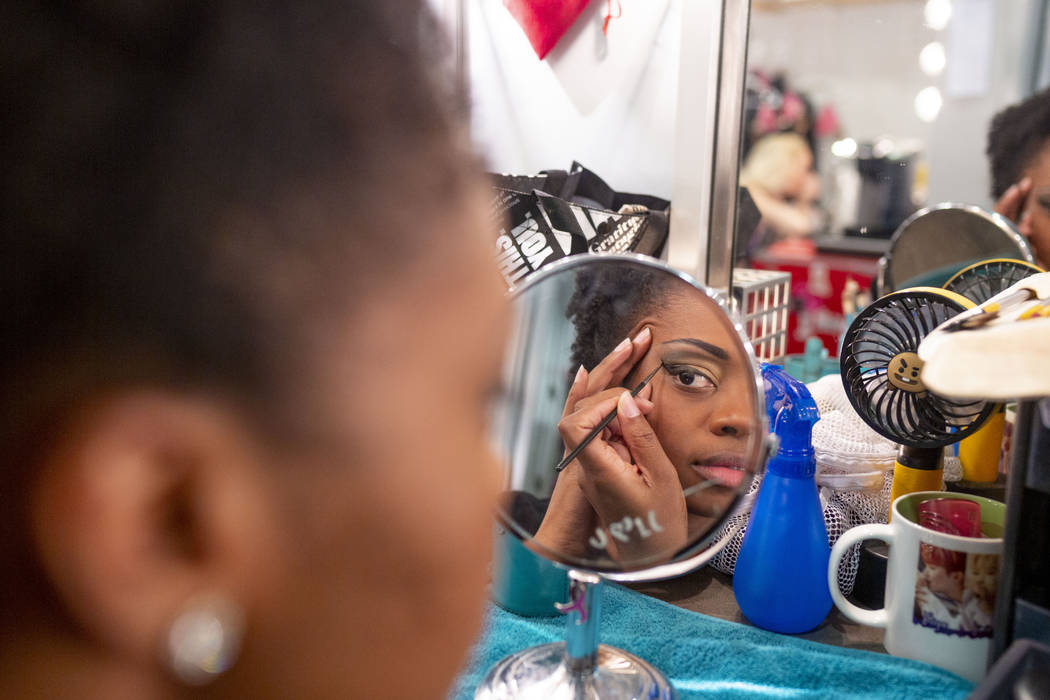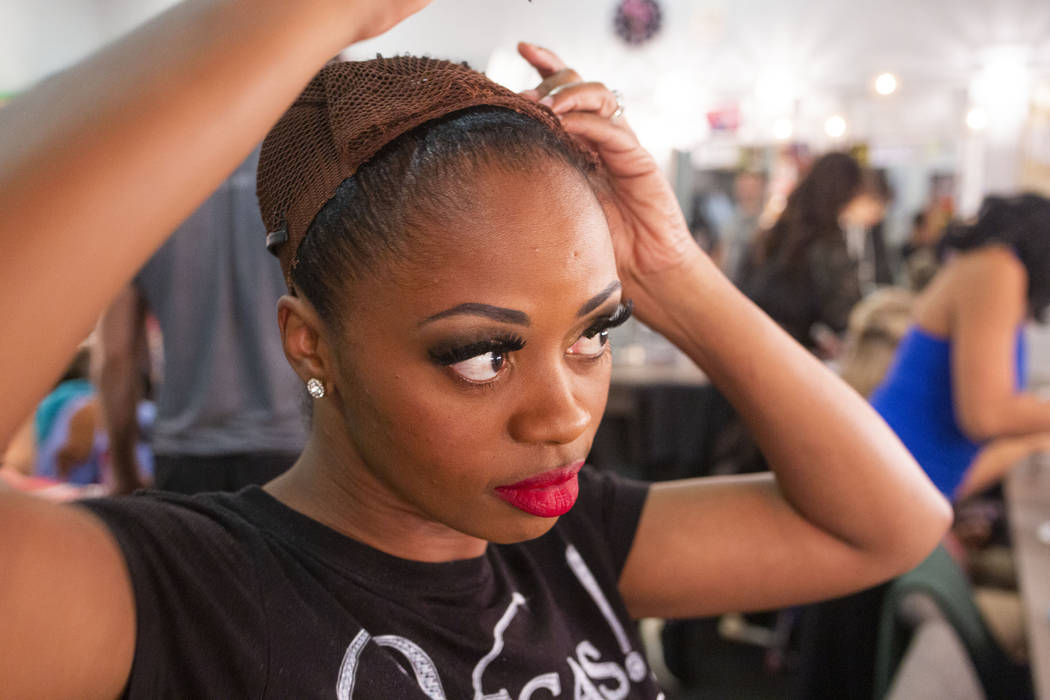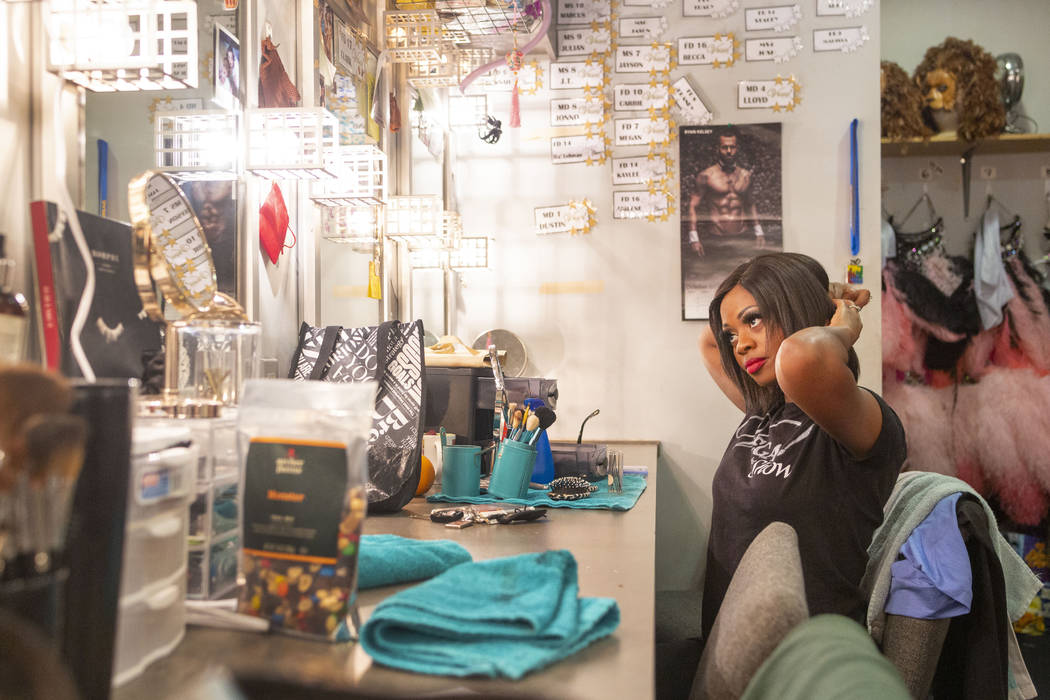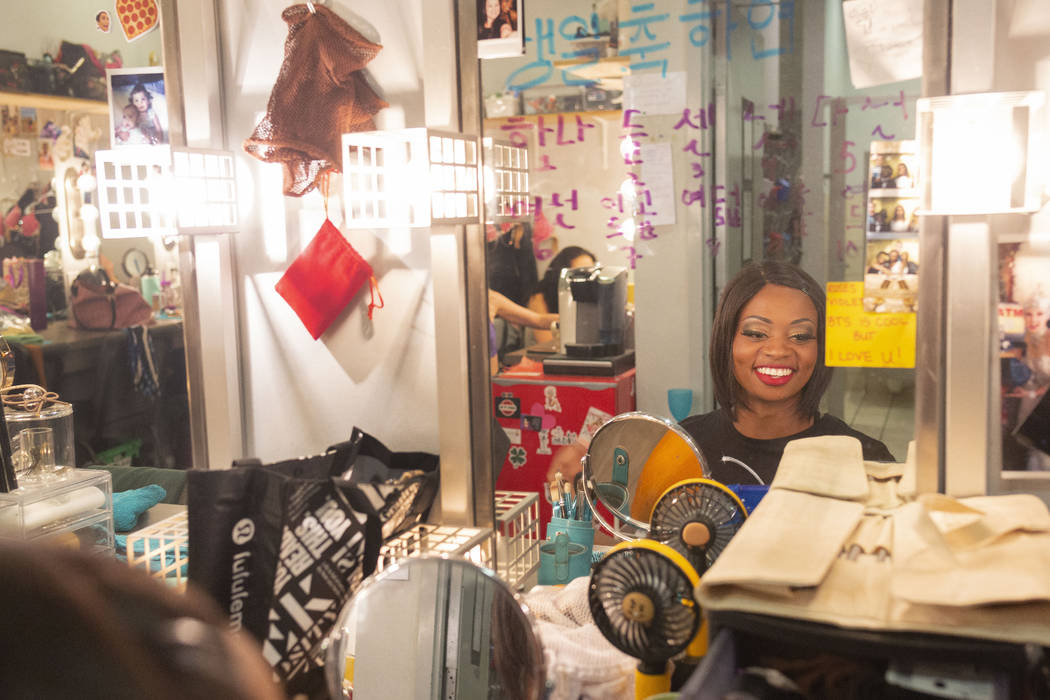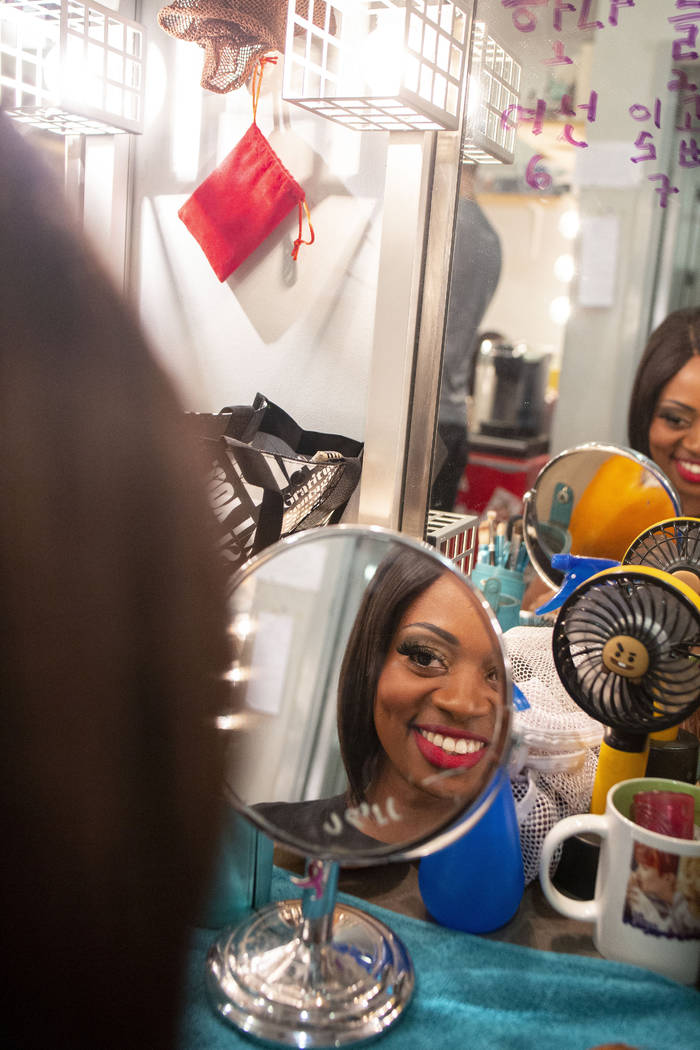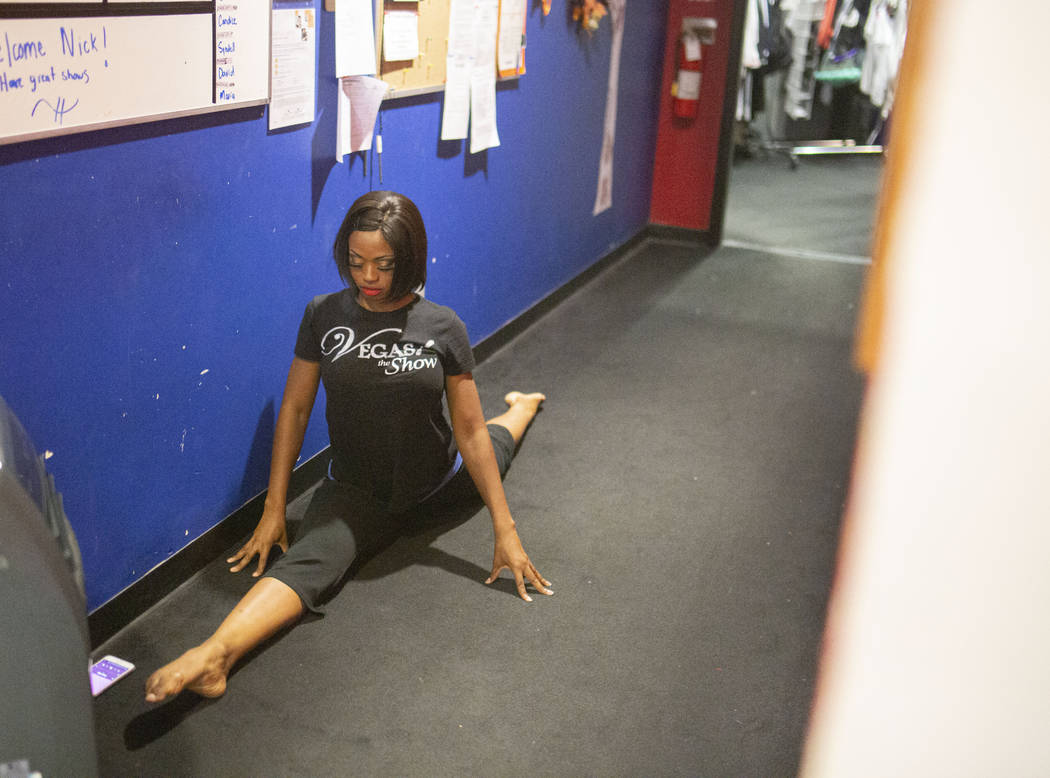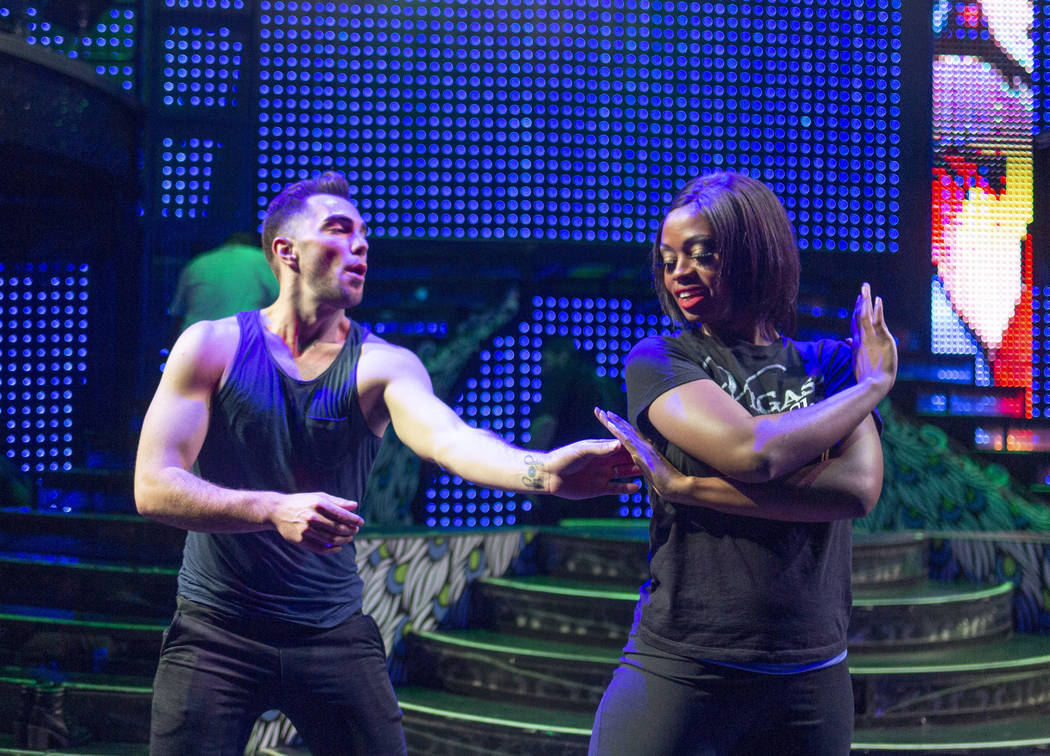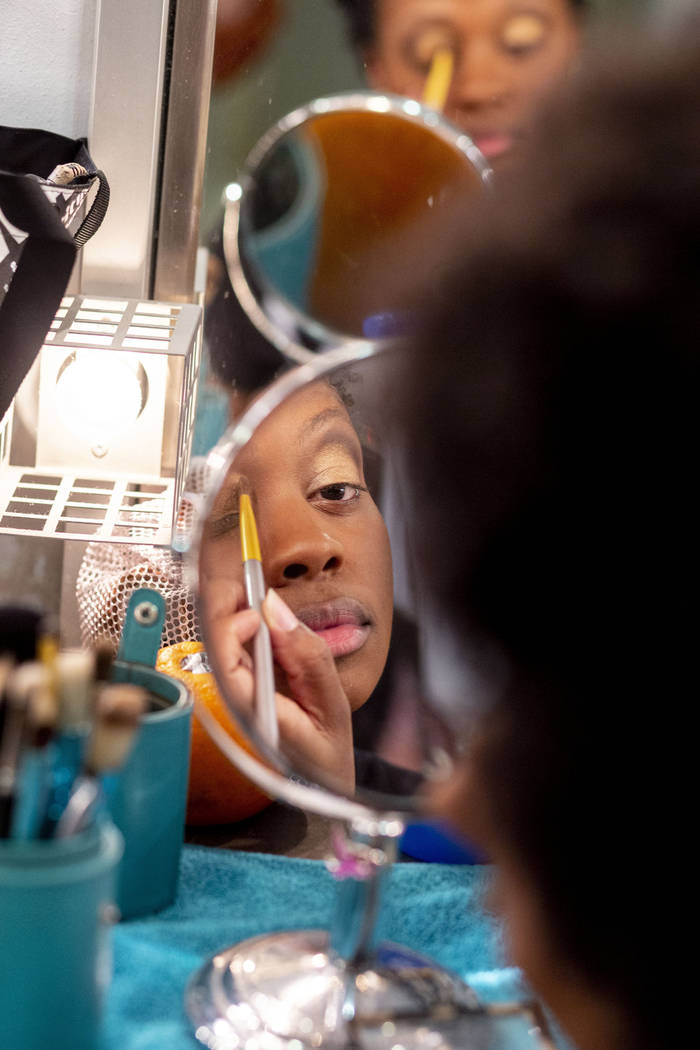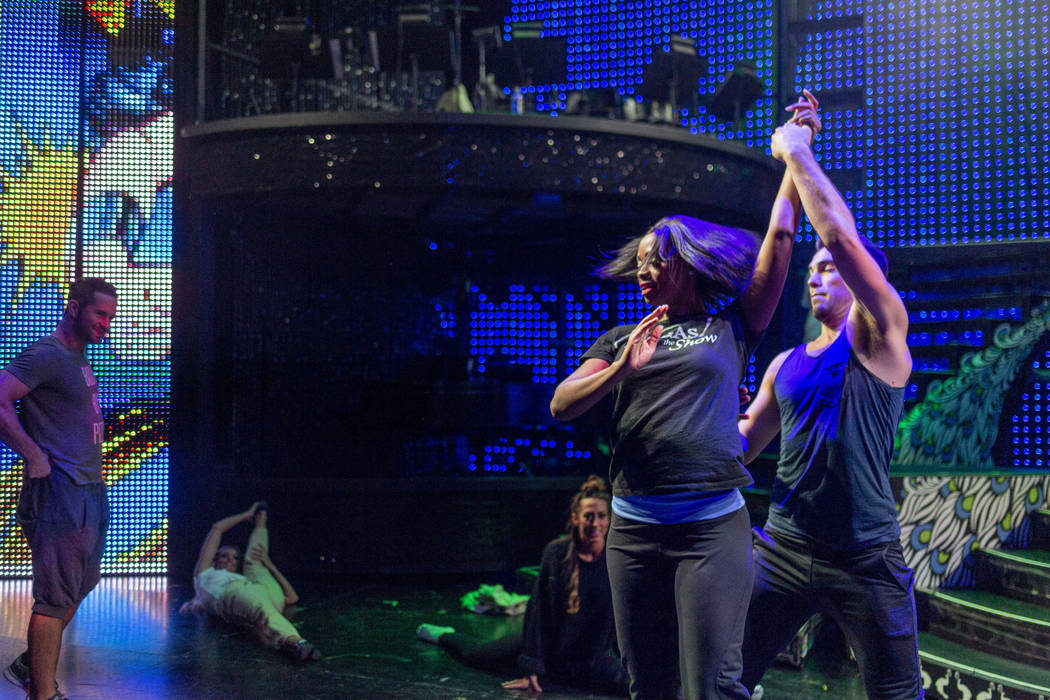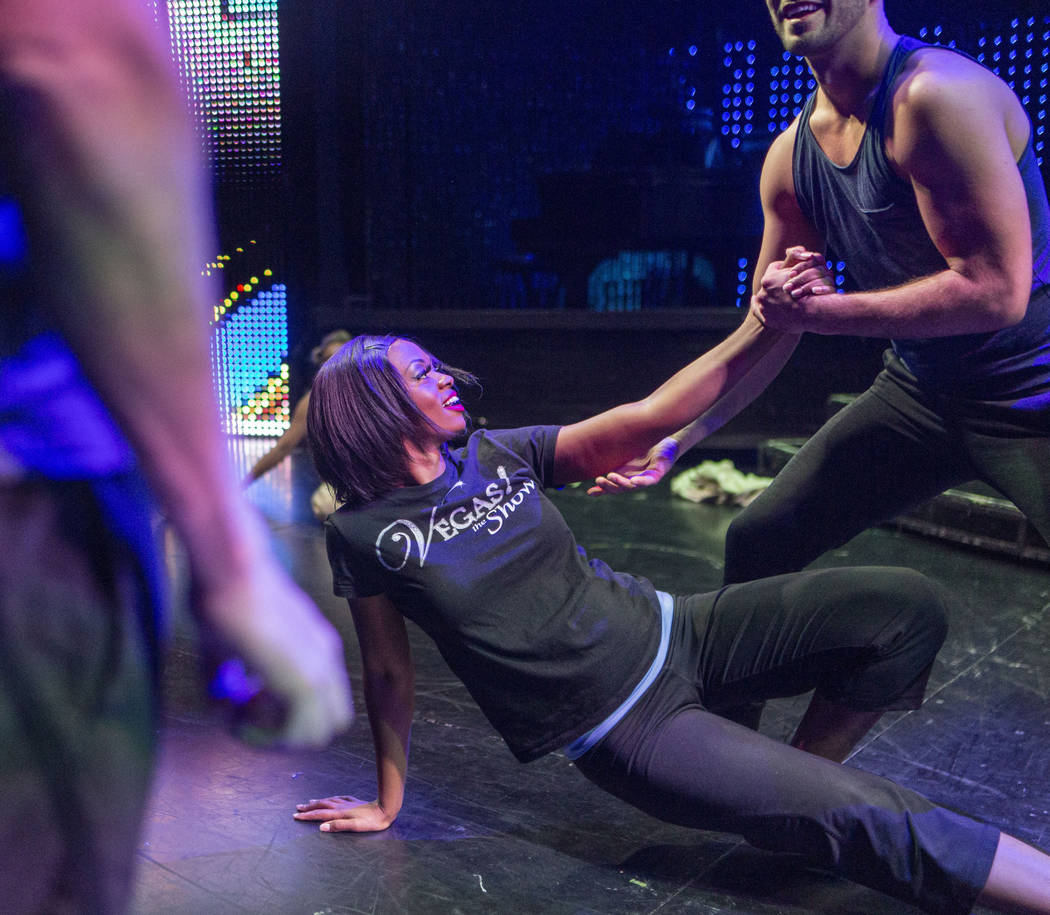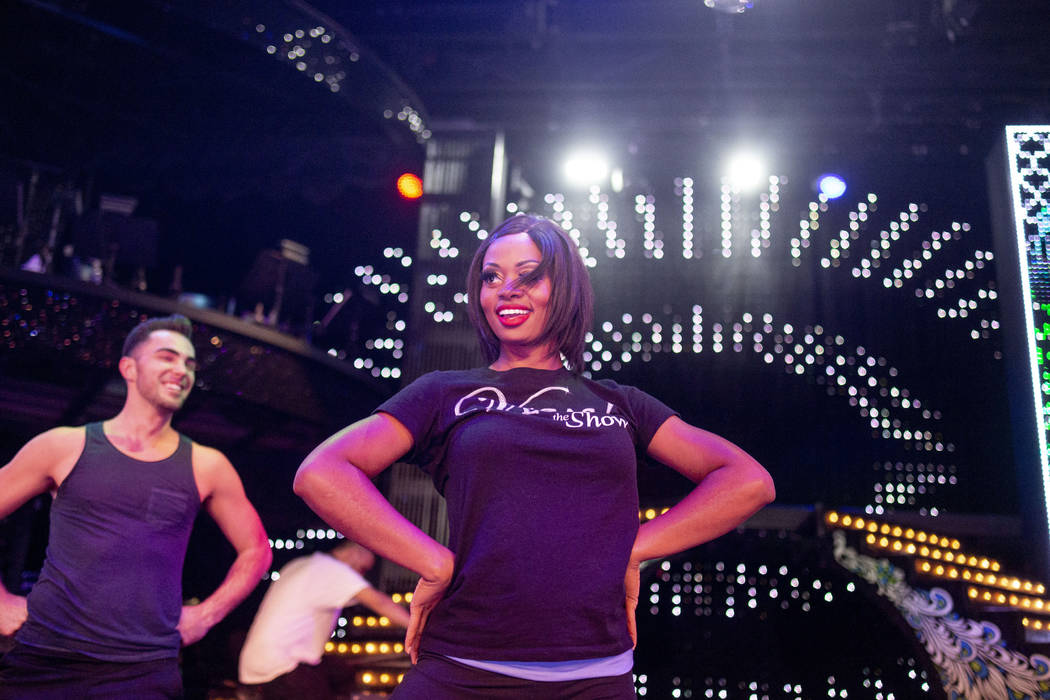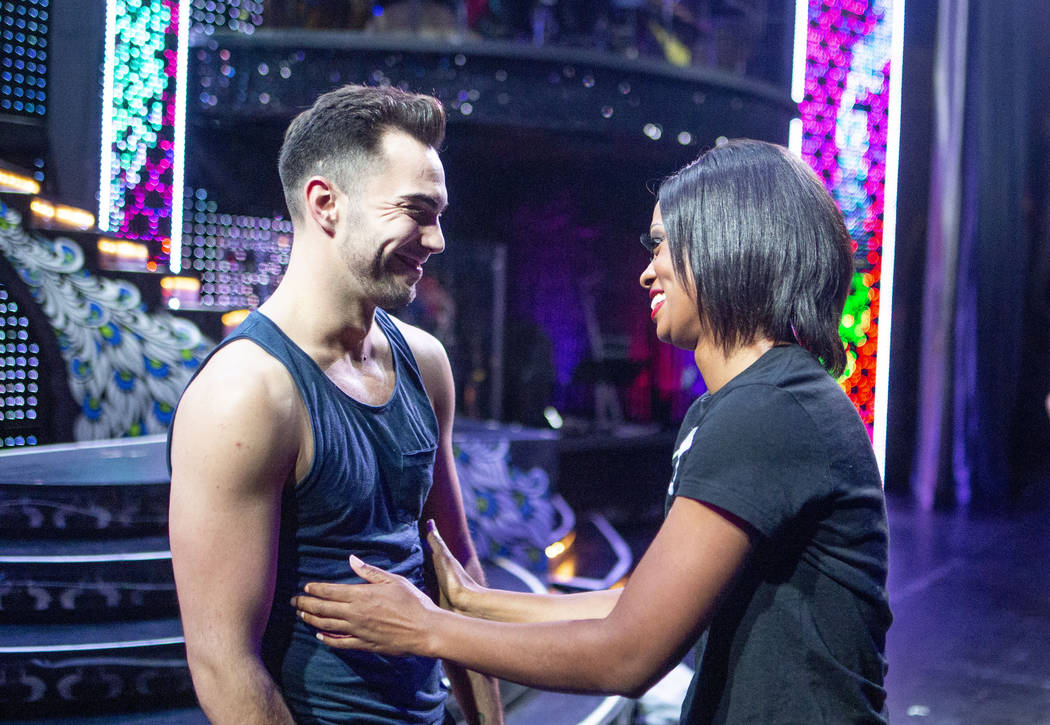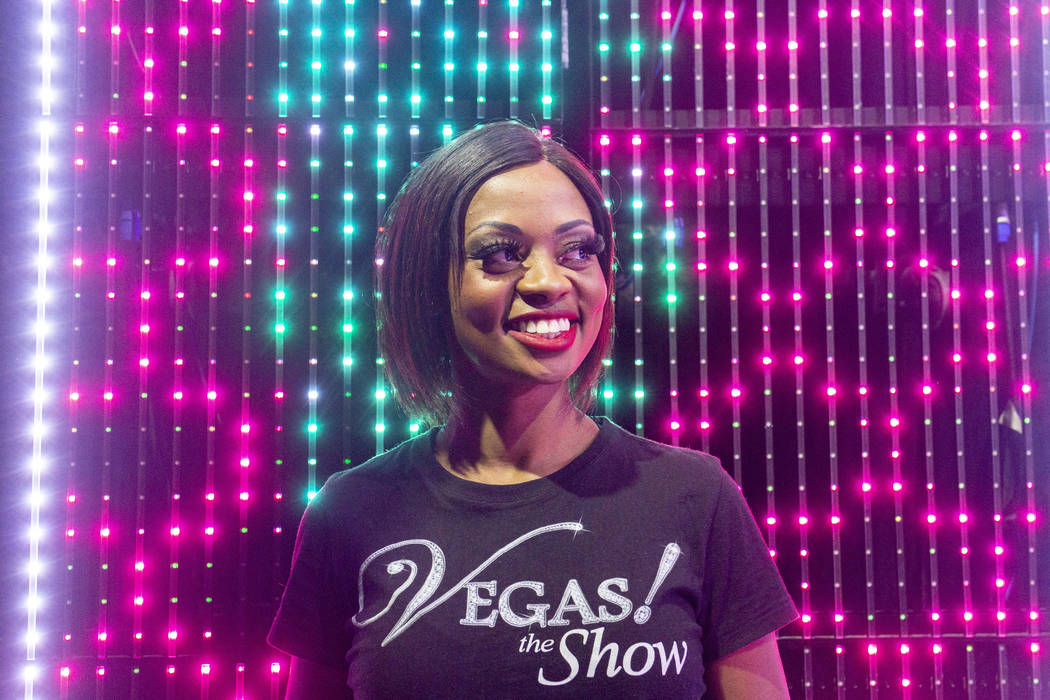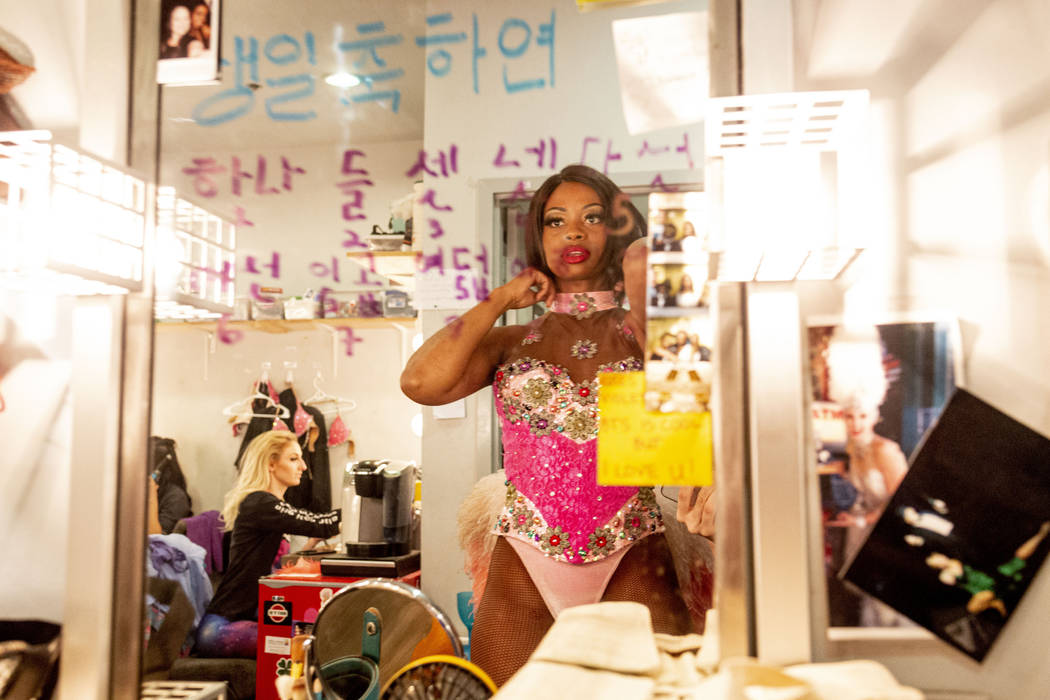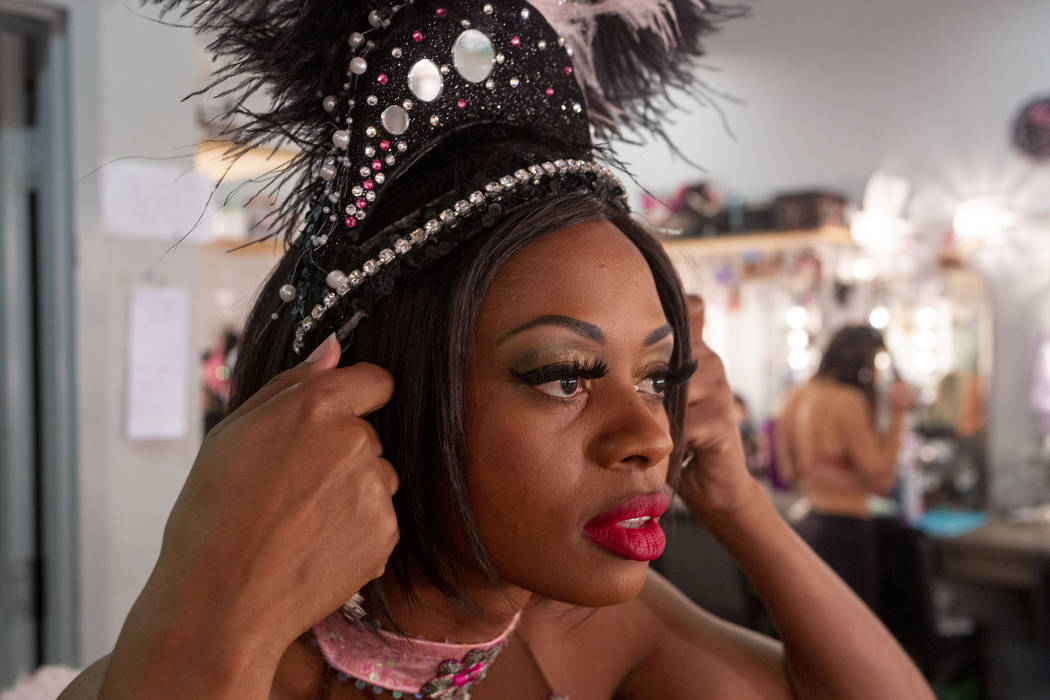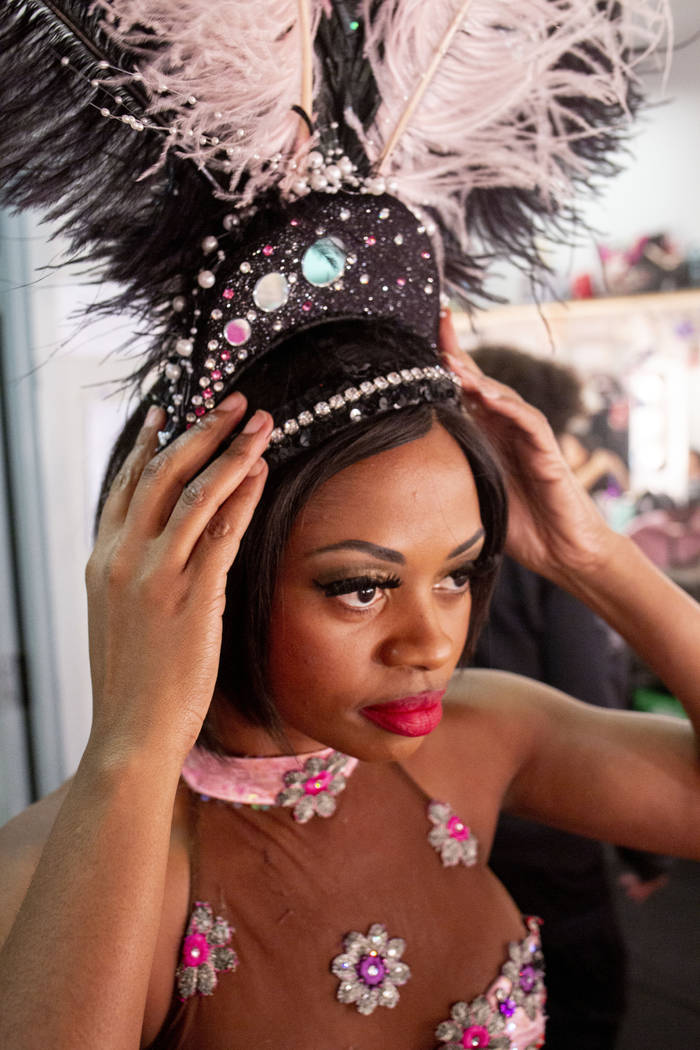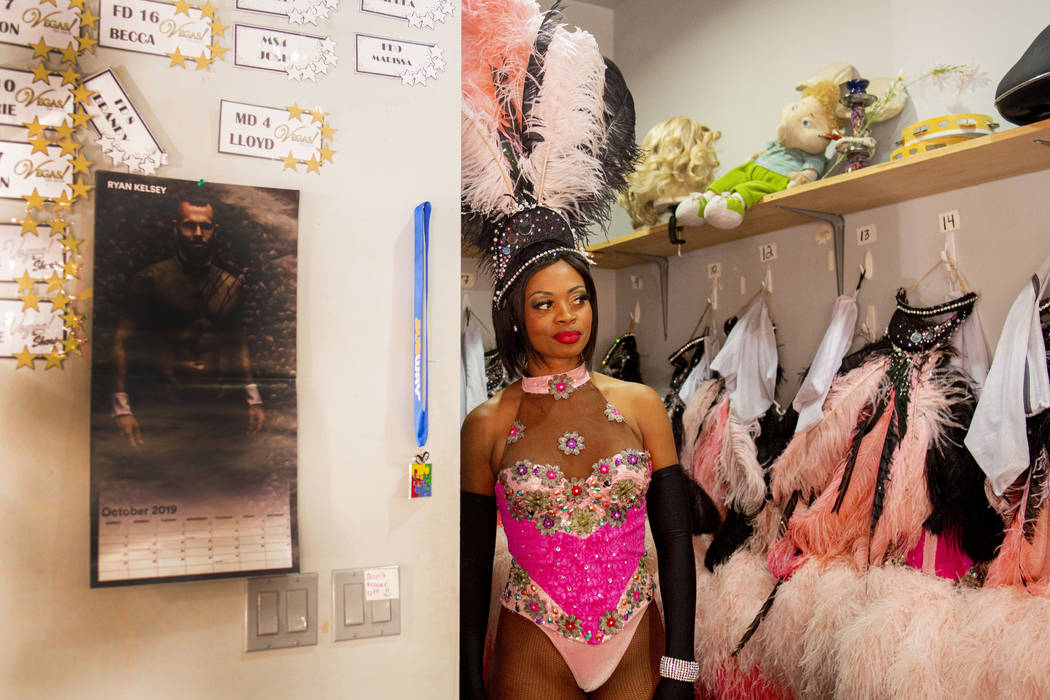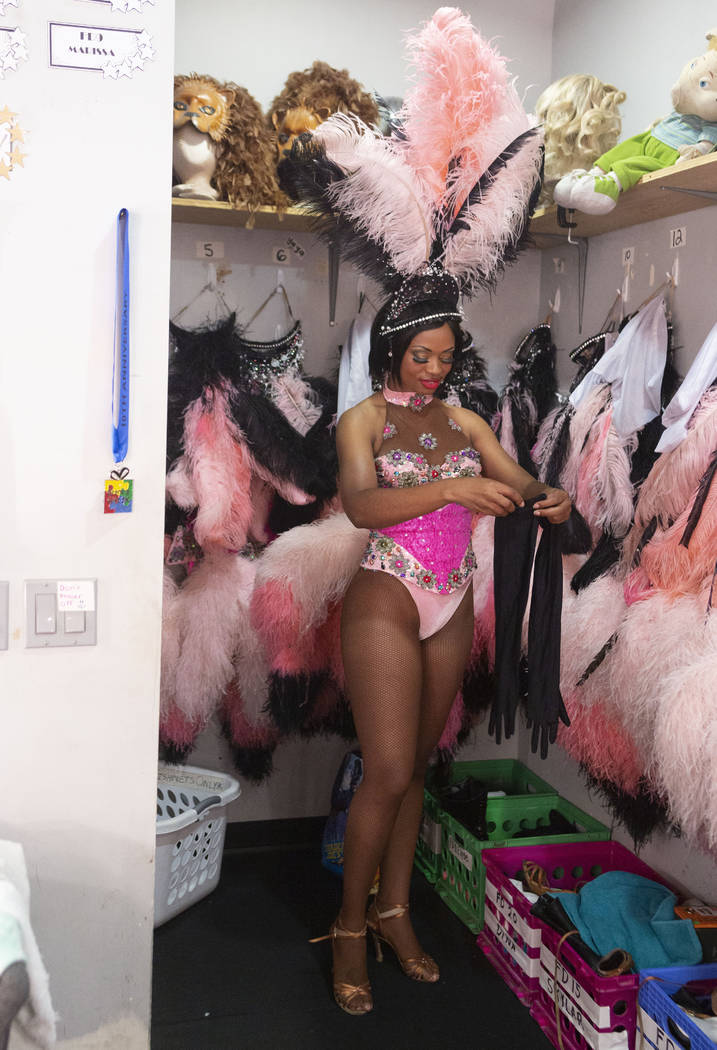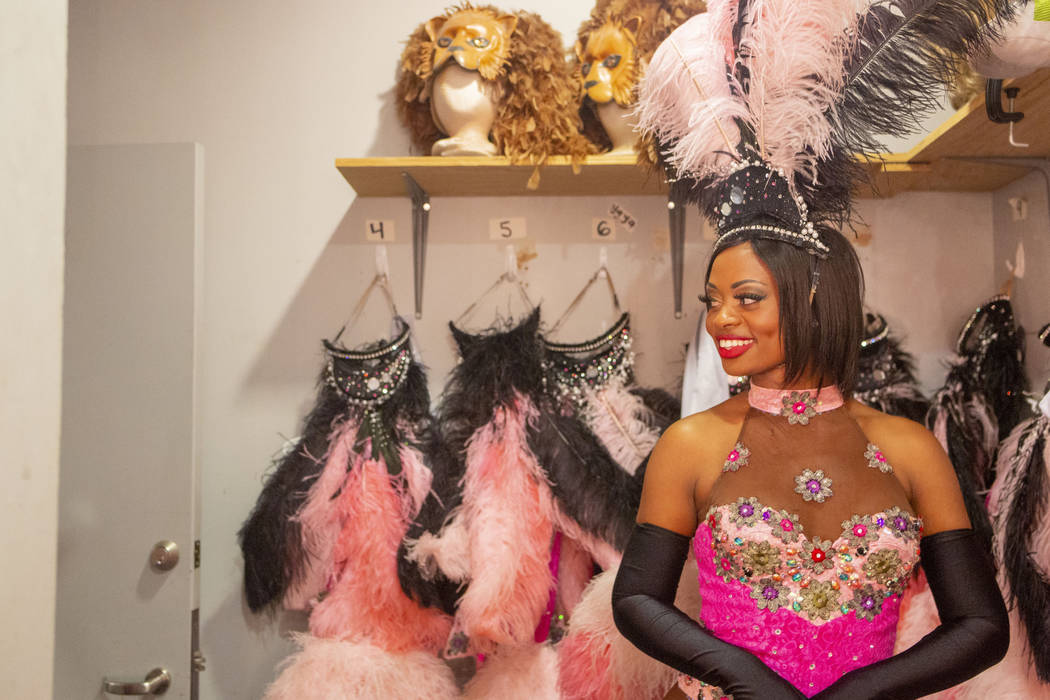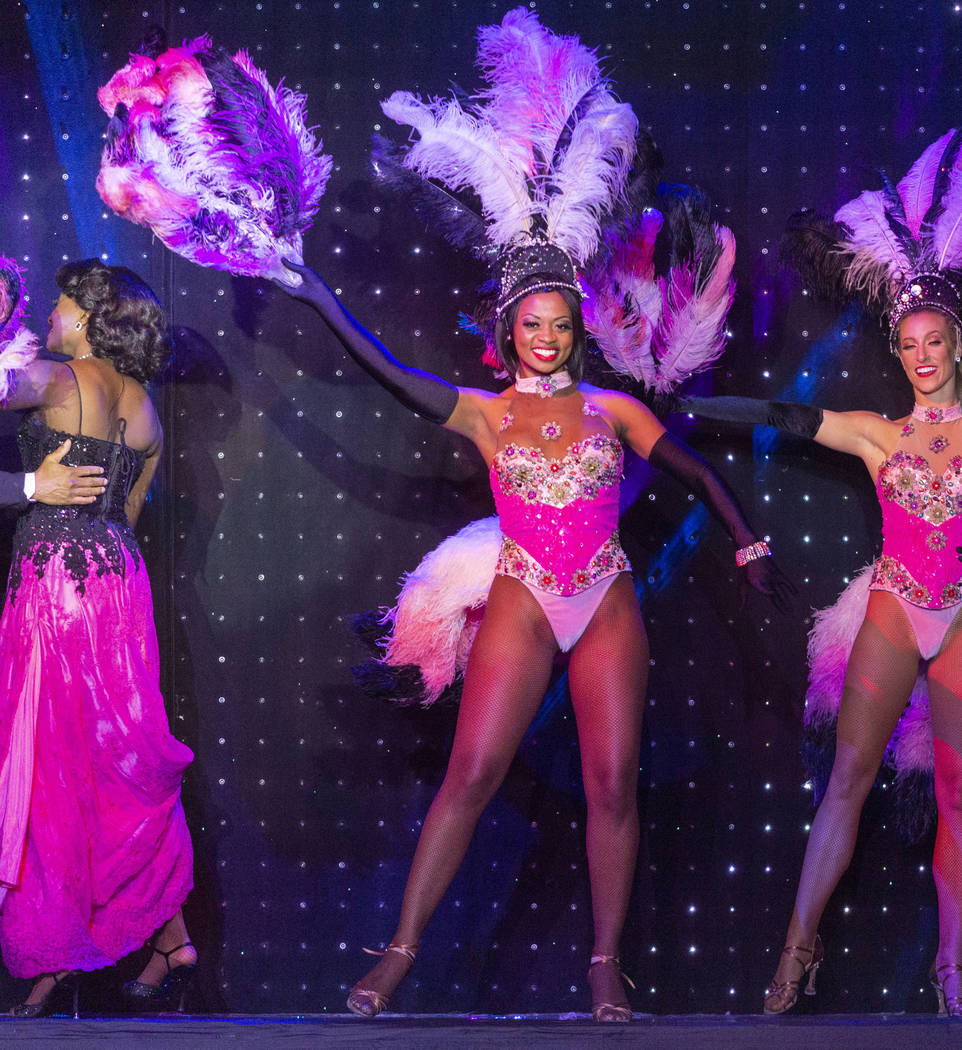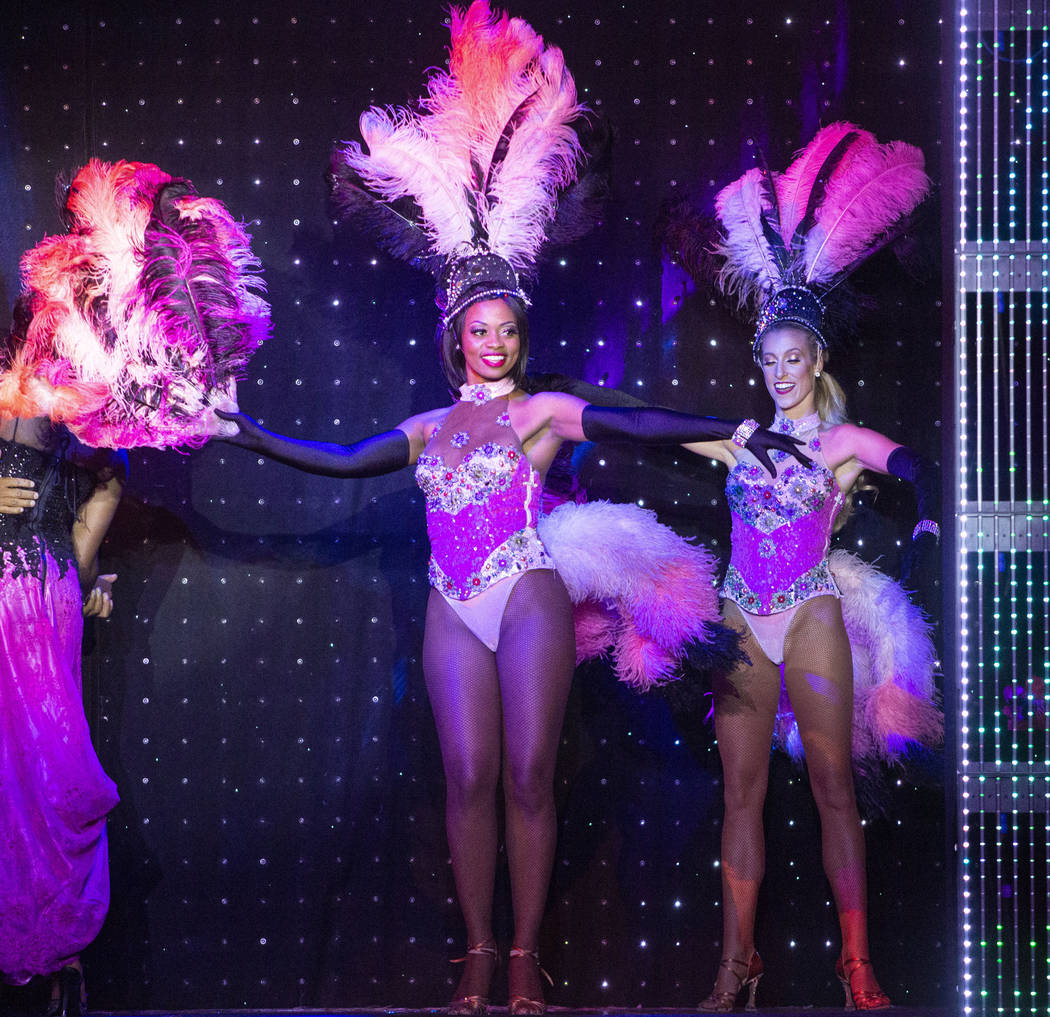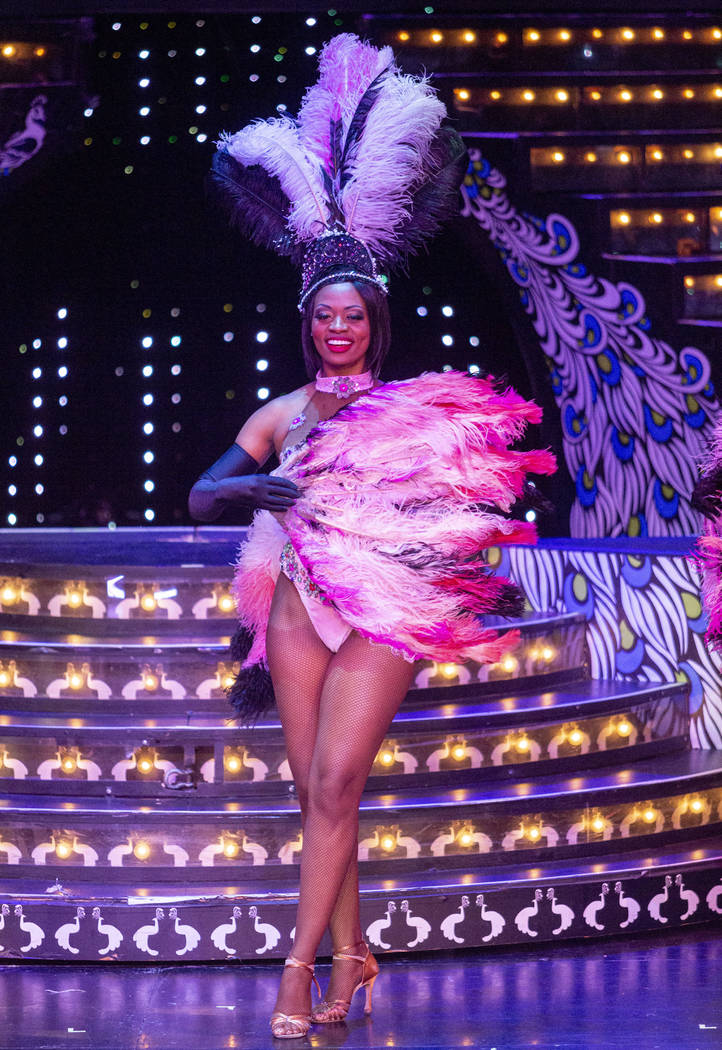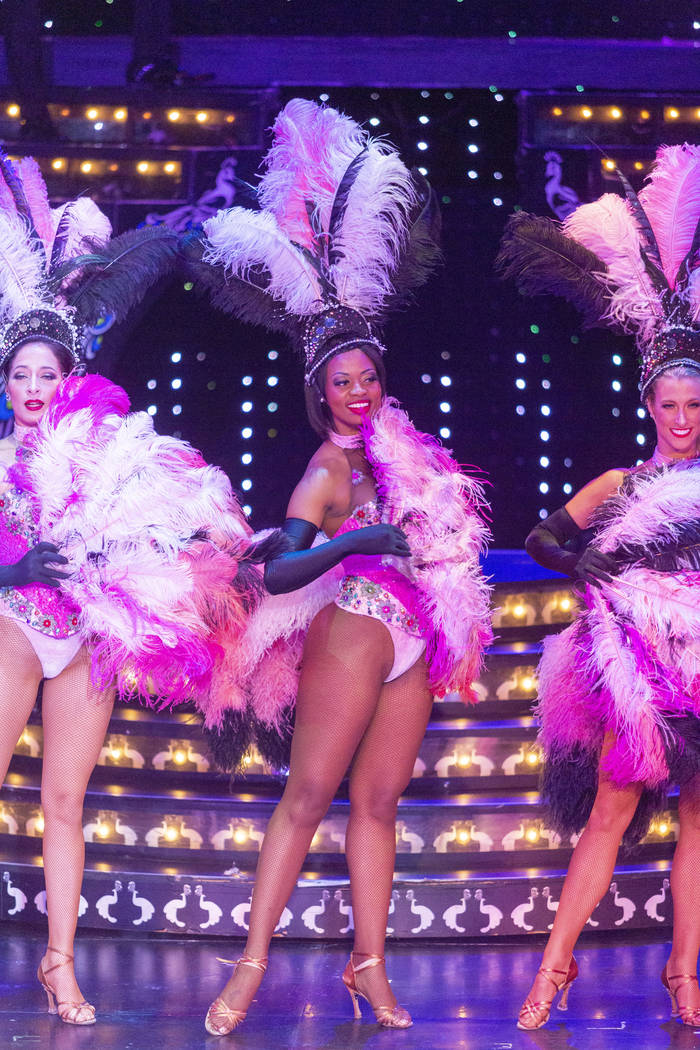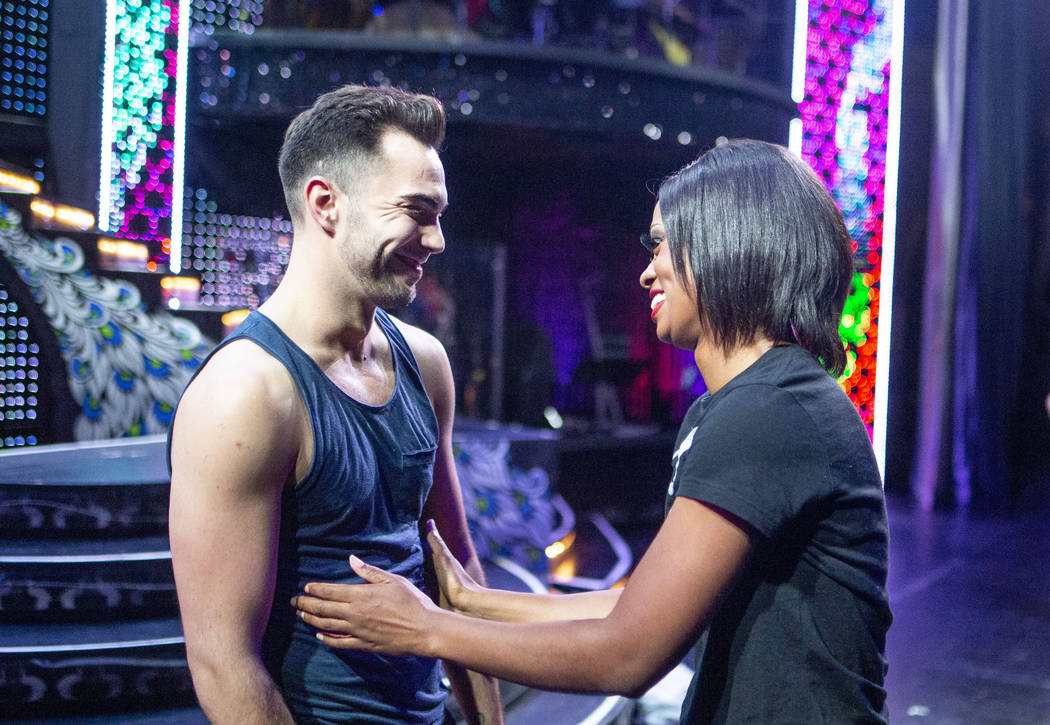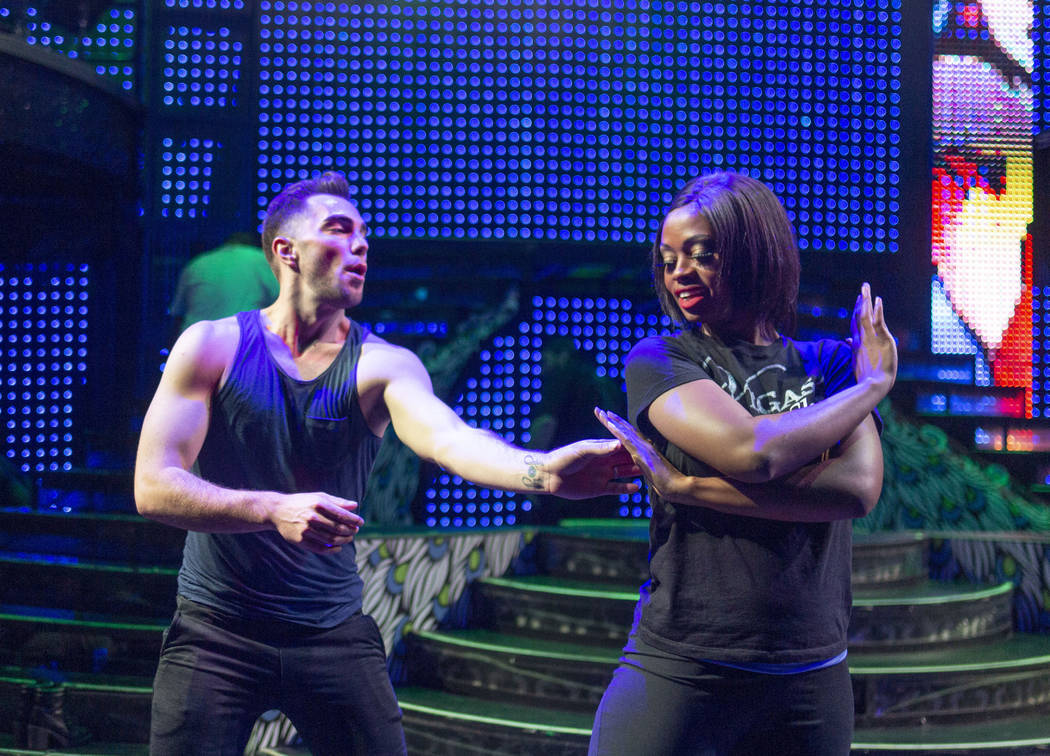Las Vegas showgirl kept dancing through breast cancer battle
When Lauren Clark felt a lump in her breast, she assumed it was a cyst and, worst-case scenario, she’d have it drained.
After all, she was just 29.
By the time she turned 30, though, Clark had undergone a lumpectomy, six rounds of chemotherapy, a double mastectomy and had her eggs frozen in hopes of one day having a child.
Through it all, Clark, a showgirl in “Vegas! The Show,” just kept dancing — whenever her health would allow it.
“The show was so awesome and so supportive with me doing that,” she says, sitting inside the Saxe Theater, “because it really helped me emotionally to be able to come here. … It was something I needed to do for my own sanity.”
‘I was desperate’
On March 16, 2015, the course of Clark’s life changed forever.
The Los Angeles native, who moved to Las Vegas in 2013 to dance in “Jubilee!,” had been traveling back and forth to her hometown for tests. The night she learned the results of her biopsy indicated cancer, she says, “I cried all the way to work because I was just scared.”
Clark underwent a lumpectomy less than two weeks after that diagnosis. Before beginning chemotherapy, though, she looked into having her eggs frozen as a hedge against the infertility that can come from cancer and its treatments. What she learned was that the procedure costs around $15,000, it isn’t covered by her insurance, and there are no payment plans. So she swallowed her pride, launched a GoFundMe drive and begged strangers for help.
“I was desperate,” she admits. “I didn’t know what else to do.”
Those strangers, many of them from the local show community, came through in a little more than a day.
‘Push and push and push’
Almost nothing about Clark, or her cancer, is typical.
According to the Susan G. Komen organization, fewer than 5 percent of women diagnosed with breast cancer in the U.S. are younger than 40. The median age at diagnosis is 64 for white women, and 60 for African Americans like Clark.
Then there’s the fact that her form of cancer — triple negative, meaning two common hormones and a protein aren’t present in the tumor, ruling out many types of treatment — left chemotherapy sessions every three weeks as her best shot.
“I was so scared for the first one, because I thought it was going to hurt,” she remembers. “But the actual process of getting chemo doesn’t hurt. It’s everything afterward.”
The first week of each round, she’d be nauseous with no trace of an appetite. During the second, she’d avoid contact with people, because her white blood cell count was too low to fight off infections.
That third week, though, was hers to dance.
Clark would have to pace herself and alter her schedule. If she danced in the show’s Louis Prima and Keely Smith number “Jump, Jive an’ Wail,” she’d need to sit out the “Mambo Italiano” segment of the Rat Pack tribute.
Some nights, she’d dance until she was dizzy.
“People would have to make me stop,” Clark says, “because I’d keep trying to push and push and push.”
Staying strong
Andrea McNulty is one of the dancers who filled in, and she remains stunned by Clark’s resilience.
“She’s just such a strong woman and never wanted to show any sign of weakness throughout the entire process. I’m still mind-blown to this day,” she says. “If you looked at her as an outsider, you would have no idea what she was going through that entire time.”
Clark kept her fellow cast members involved in her journey from the moment she told them, matter-of-factly, that she had cancer and would need to miss some work.
“She had all of us actually feel where the cancer was,” McNulty recalls, “because she wanted us to know exactly what she had found. ‘I need you guys to know, so you can be really self-aware.’ ”
From there, she made sure they performed monthly self exams as part of the Feel It on the First campaign.
McNulty was an easy convert.
“It’s something so important that women just kind of pass by. … It’s something so simple that you can catch so early if you’re conscious about it.”
‘Why would I do that?’
During her chemotherapy, Clark’s doctors discovered a BRCA2 gene mutation, which greatly increases the risks of developing additional cancers in the breasts and ovaries.
After the test once again came back positive — her mother insisted on a second one — Clark’s decision was easy to make yet difficult to accept.
“I wasn’t going to risk getting cancer (again) to keep my breasts,” she says, even though doctors gave her the choice of having them for a few more years while having radiation therapy. “Radiation is so dangerous, because it can cause other cancers. So I was, like, ‘No. Why would I do that to myself? Take ’em.’ ”
After recovering from her double mastectomy, Clark continued to dance whenever she could despite the pain of the tissue expanders, necessary for her breast reconstruction, “that felt so bad, it literally felt like bricks were on my chest.”
Once Clark was finally healed from all the procedures, McNulty says about 15 dancers threw a bra party, with each of them gifting their friend lingerie to celebrate her new breasts.
‘Go get it checked’
Clark, now 33, is cancer-free, but she’ll be living with the aftermath of her battle for the rest of her life.
She’s facing annual MRIs to check for cancer. And, because of that BRCA2 mutation, she’s decided to have her ovaries removed. Since she’s been told the risk of ovarian cancer increases at age 40, she’s planning to have them taken out at 37. That leaves her a four-year window to have a child.
Then there are the scars — both physical and mental — that she hides as best as she can.
For the most part, Clark talks about her cancer as though it were experienced by someone else. At times, she can sound detached, almost clinical. But emotion creeps through when she thinks about the future and the fact that she’ll never be able to breastfeed that child.
“It’s not easy,” she finally admits.
But that’s not the message she wants to leave.
This is.
“Definitely do self breast exams,” Clark says. “It’s huge. If you find anything, don’t be scared of it. Get it checked. Don’t let it linger. Don’t be afraid of it. Go get it checked.”
Contact Christopher Lawrence at clawrence@reviewjournal.com or 702-380-4567. Follow @life_onthecouch on Twitter.




